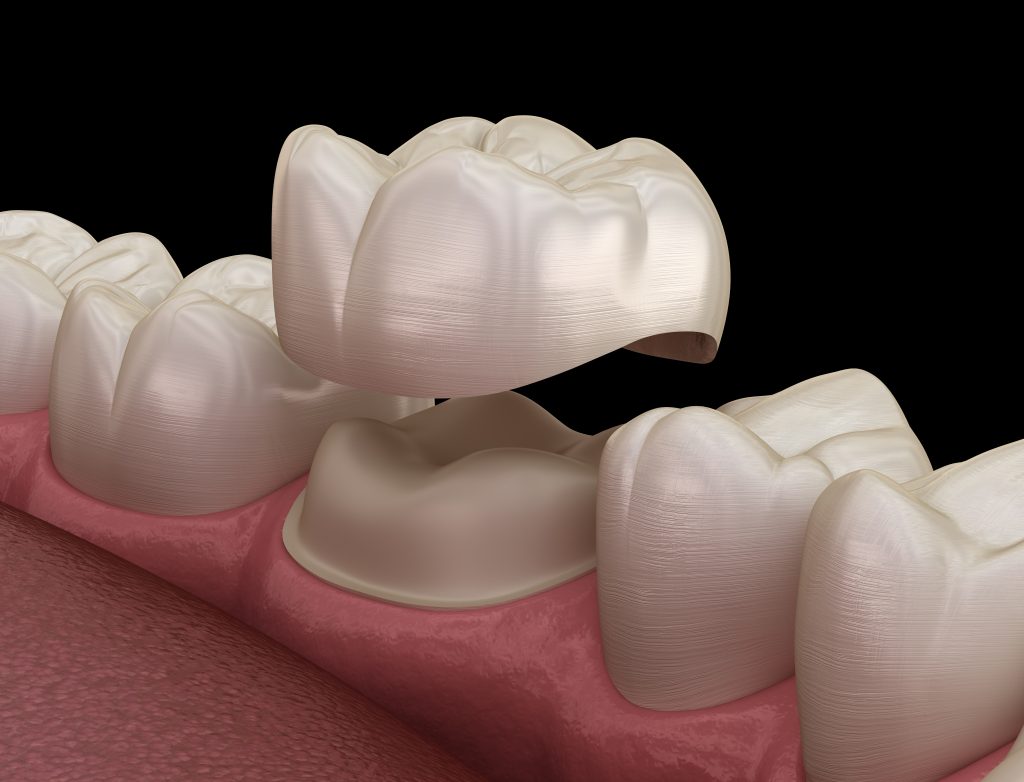Tooth decay is a popular reason why patients need to visit the dentist in an emergency. Decay occurs when a tiny opening (or a hole) known as a cavity forms in the tooth root owing to dental plaque eating away at your tooth enamel.
When decay gets worse, it means the tooth will become unrepairable and would likely need to be extracted. Although to avoid decay becoming worse, the tooth can be protected with a dental crown.
A crown is fitted to the damaged tooth permanently to protect it from further damage. This can allow the tooth to rebuild its strength through a strong oral routine.
One question that’s been raised, however, is whether dental crowns get cavities.

Can Crowns Get Cavities?
The short answer to this is no. Crowns do not get cavities. This is because fitted crowns are made out of synthetic material, and acts either as a replacement for the top part of the tooth, the foundation, or the base of an implant.
Although, the protected tooth can still develop cavities around the edges of the crown or underneath it. This only occurs where strong oral hygiene isn’t performed to keep the tooth and crown strong. When this happens, there is a likely chance for plaque and bacteria to form. This means the protected tooth can still develop a cavity.

How Can I Protect Myself From Cavities?
The simplest answer to this question is to perform strong oral hygiene comprising of brushing and flossing your teeth twice a day and keeping the affected tooth clean at all times. Neglecting your oral health can compromise the crown and cause further problems. Ensure that food particles do not appear around the protected tooth as well. The dentist is always best placed to determine the health of the protected tooth and crown. Therefore, regularly visiting the dentist for a check-up is also vitally important.
If you’re suffering from dental cavities and you see the following signs of a cavity, we’re here to help you. Contact us at Dural Dental right now and check yourself in with us by clicking here.





